פּאַרטיזאַנער־ליד: שטיל, די נאַכט איז אױסגעשטערנט
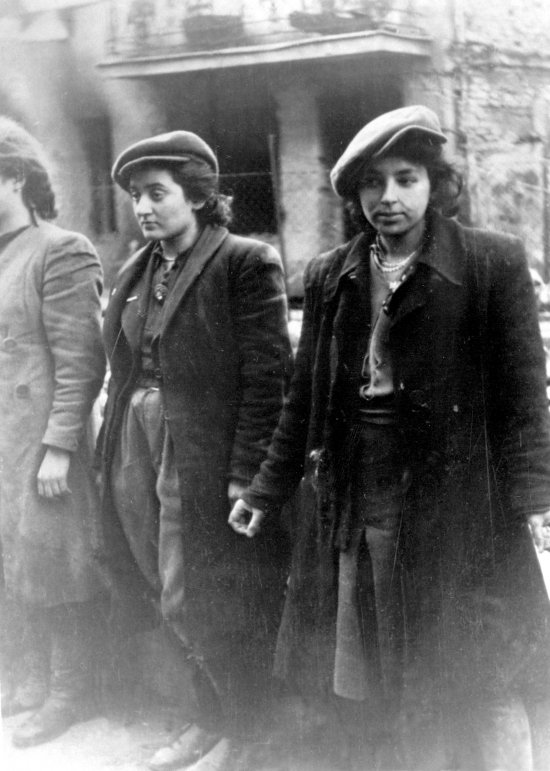
שטיל, די נאַכט איז אױסגעשטערנט*
(Continues)
(Continues)
Contributed by Bartleby + CCG/AWS Staff 2011/1/31 - 10:14
Song Itineraries:
Ghettos
מזעס איז די ערשטע זאַך
Anonymous
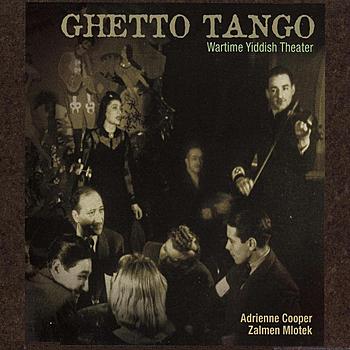
Mues iz di ershte zakh
[1942?]
Incisione/Recording:
Adrienne Cooper and Zalmen Mlotek,
Ghetto Tango, 2005
"Una canzone su di un tema difficile e dibattuto, quello del governo dei ghetti da parte delle autorità ebraiche (Judenräte) imposte dai nazisti.
"Quel che serve sono i soldi", dice questa canzone dal tono duro e sarcastico... Lo Judenrat passa solo un po' di pane e zucchero e, se non hai i soldi per corrompere i poliziotti (il riferimento è alla polizia ebraica), si può finire molto male: divorati dalla fame, dai pidocchi e dai vermi e "immortalati" nel registro dei decessi della comunità...
Testo trovato qui" [Alessandro "Bartleby"]
La canzone sembra provenire direttamente dal ghetto di Varsavia, e di questo risente molto lo yiddish utilizzato: pieno di termini in slang (uno slang proveniente in parte, come è ovvio, dalla lingua polacca), che non sono di facile interpretazione.... (Continues)
[1942?]
Incisione/Recording:
Adrienne Cooper and Zalmen Mlotek,
Ghetto Tango, 2005
"Una canzone su di un tema difficile e dibattuto, quello del governo dei ghetti da parte delle autorità ebraiche (Judenräte) imposte dai nazisti.
"Quel che serve sono i soldi", dice questa canzone dal tono duro e sarcastico... Lo Judenrat passa solo un po' di pane e zucchero e, se non hai i soldi per corrompere i poliziotti (il riferimento è alla polizia ebraica), si può finire molto male: divorati dalla fame, dai pidocchi e dai vermi e "immortalati" nel registro dei decessi della comunità...
Testo trovato qui" [Alessandro "Bartleby"]
La canzone sembra provenire direttamente dal ghetto di Varsavia, e di questo risente molto lo yiddish utilizzato: pieno di termini in slang (uno slang proveniente in parte, come è ovvio, dalla lingua polacca), che non sono di facile interpretazione.... (Continues)
מועס איז די ערשטע זאַך.
(Continues)
(Continues)
Contributed by Alessandro + CCG/AWS Staff 2009/1/28 - 09:05
איציק װיטענבערג
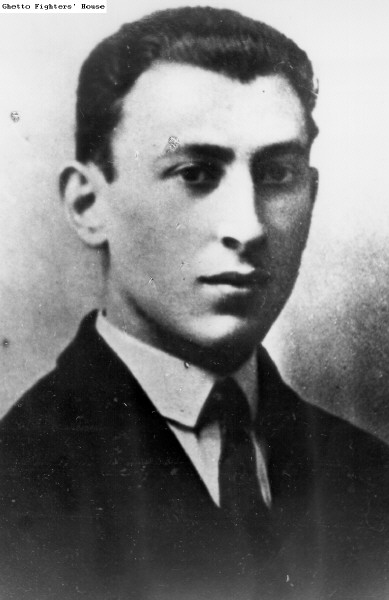
Yitsik Vitnberg
[1946]
Testo di Shmerke Kaczerginski
Musica originale di Matvej Isaakovič Blanter
Lyrics by Shmerke Kaczerginski
Original (Russian) music by Matvej Isaakovič Blanter
La canzone fu scritta da Kaczerginsky, poeta e partigiano ebreo, dopo la fallita rivolta del Ghetto nel settembre 1943 e racconta della resa del comandante partigiano Yitzhak Wittenberg alla Gestapo nazista, che ne aveva chiesto la consegna minacciando la distruzione del Ghetto. Infatti, le continue "aktionen" degli occupanti ai danni degli abitanti del Ghetto, avevano posto la Judenrat, la dirigenza ebraica, in contrasto con la resistenza organizzata nella "Fareynikte Partizaner Organizatsye" (FPO). I partigiani ebrei lasciarono quindi il Ghetto per unirsi alle altre forze della resistenza, ma ciò naturalmente non impedì ai nazisti di liquidarlo alla fine dello stesso 1943.
"... Da qualche parte il nemico
Si... (Continues)
[1946]
Testo di Shmerke Kaczerginski
Musica originale di Matvej Isaakovič Blanter
Lyrics by Shmerke Kaczerginski
Original (Russian) music by Matvej Isaakovič Blanter
La canzone fu scritta da Kaczerginsky, poeta e partigiano ebreo, dopo la fallita rivolta del Ghetto nel settembre 1943 e racconta della resa del comandante partigiano Yitzhak Wittenberg alla Gestapo nazista, che ne aveva chiesto la consegna minacciando la distruzione del Ghetto. Infatti, le continue "aktionen" degli occupanti ai danni degli abitanti del Ghetto, avevano posto la Judenrat, la dirigenza ebraica, in contrasto con la resistenza organizzata nella "Fareynikte Partizaner Organizatsye" (FPO). I partigiani ebrei lasciarono quindi il Ghetto per unirsi alle altre forze della resistenza, ma ciò naturalmente non impedì ai nazisti di liquidarlo alla fine dello stesso 1943.
"... Da qualche parte il nemico
Si... (Continues)
ס'ליגט ערגעץ פֿאַרטײַעטס'ליגט ערגעץ פֿאַרטײַעט
(Continues)
(Continues)
Contributed by Alessandro + CCG/AWS Staff 2009/1/28 - 08:40
Song Itineraries:
Ghettos
שטילער, שטילער
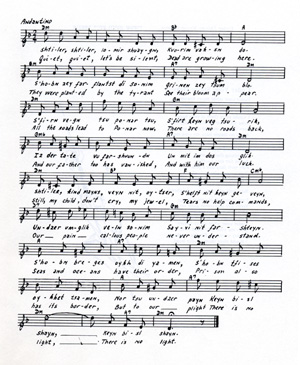
Shtiler, shtiler
[1942]
Parole di Shmerke Kaczerginski
Musica di Alex Wolkoviski (Alexander Wolkowsky, Alexander Tamir)
Lyrics by Shmerke Kaczerginski
Music by Alex Wolkoviski (Alexander Wolkowsky, Alexander Tamir)
"'Shtiler, shtiler’ (Hush, hush), composed by the eleven-year-old Alek Volkoviski with lyrics by Shmerke Kaczerginski, was one of the best-loved songs of the Vilna ghetto. The lullaby was first performed in April 1943, at one of the last Jewish Council-organised concerts before the ghetto’s liquidation. The poignant lyrics chronicle the murders taking place at Ponar, a forest near Vilna, and lament the pain and suffering of the ghetto inmates." - Music and the Holocaust
"The song was published by Shmerke Kaczerginski in his anthology, Lider fun di Getos un Lagern (1948): the lyrics appear on page 88, the melody on page 385. The song was also published in Eleanor Mlotek... (Continues)
[1942]
Parole di Shmerke Kaczerginski
Musica di Alex Wolkoviski (Alexander Wolkowsky, Alexander Tamir)
Lyrics by Shmerke Kaczerginski
Music by Alex Wolkoviski (Alexander Wolkowsky, Alexander Tamir)
"'Shtiler, shtiler’ (Hush, hush), composed by the eleven-year-old Alek Volkoviski with lyrics by Shmerke Kaczerginski, was one of the best-loved songs of the Vilna ghetto. The lullaby was first performed in April 1943, at one of the last Jewish Council-organised concerts before the ghetto’s liquidation. The poignant lyrics chronicle the murders taking place at Ponar, a forest near Vilna, and lament the pain and suffering of the ghetto inmates." - Music and the Holocaust
"The song was published by Shmerke Kaczerginski in his anthology, Lider fun di Getos un Lagern (1948): the lyrics appear on page 88, the melody on page 385. The song was also published in Eleanor Mlotek... (Continues)
שטילער, שטילער, לאָמיר שװײַגן,
(Continues)
(Continues)
Contributed by Alessandro + CCG/AWS Staff 2009/1/20 - 14:41
עס איז געװענ אַ זומער־טאָג
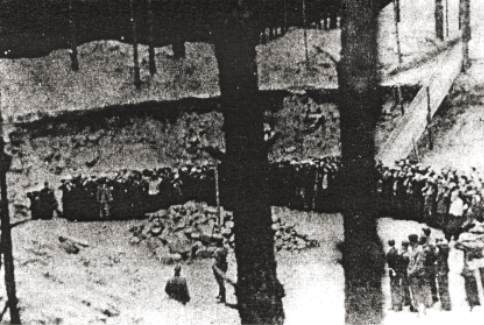
Es iz geven a zumer-tog
[1942]
Parole di Rikle Glezer
Musica della canzone popolare yiddish פּאַפּיראָסן ("Sigarette"), composta da Hermann Yablokoff.
Lyrics by Rikle Glezer
To the tune of the Yiddish folksong פּאַפּיראָסן ("Cigarettes"), composed by Hermann Yablokoff.
Il brano apre il cd "Partisans of Vilna - The Songs of World War II Jewish Resistance" prodotto da Henry Sapoznik and Josh Waletzky (1989).
La foresta di Ponar (Ponary in polacco, Paneriai in lituano), vicino a Vilnius (Vilna), menzionata nella canzone, è uno dei più famigerati luoghi di esecuzioni di massa effettuate dai nazisti durante l'occupazione. Per maggiori notizie si veda שטילער, שטילער.
"'S'iz geven a zumertog' (It was a summer's day) was written by the 18-year-old Vilna ghetto inmate Rikle Glezer, and based on the melody of the popular pre-war Yiddish theatre song 'Papirosn' (Cigarettes). The song chronicles... (Continues)
[1942]
Parole di Rikle Glezer
Musica della canzone popolare yiddish פּאַפּיראָסן ("Sigarette"), composta da Hermann Yablokoff.
Lyrics by Rikle Glezer
To the tune of the Yiddish folksong פּאַפּיראָסן ("Cigarettes"), composed by Hermann Yablokoff.
Il brano apre il cd "Partisans of Vilna - The Songs of World War II Jewish Resistance" prodotto da Henry Sapoznik and Josh Waletzky (1989).
La foresta di Ponar (Ponary in polacco, Paneriai in lituano), vicino a Vilnius (Vilna), menzionata nella canzone, è uno dei più famigerati luoghi di esecuzioni di massa effettuate dai nazisti durante l'occupazione. Per maggiori notizie si veda שטילער, שטילער.
"'S'iz geven a zumertog' (It was a summer's day) was written by the 18-year-old Vilna ghetto inmate Rikle Glezer, and based on the melody of the popular pre-war Yiddish theatre song 'Papirosn' (Cigarettes). The song chronicles... (Continues)
עס איז געװענ אַ זומער־טאָג
(Continues)
(Continues)
Contributed by Alessandro + CCG AWS Staff 2009/1/20 - 09:21
Jüdischer Todessang, oder Zehn Brüder
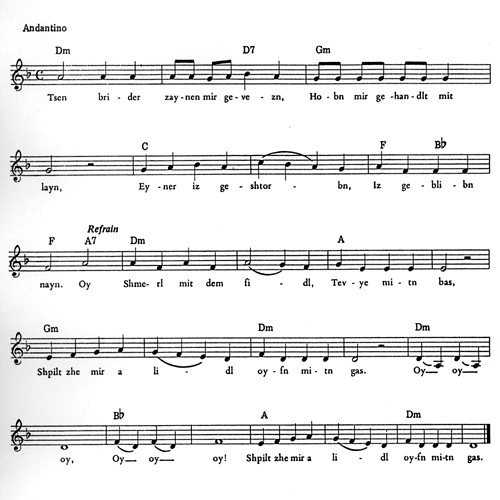
צען ברידער (Tsen Brider), la canzone popolare yiddish originale / The original Yiddish folksong
Riproduciamo da Musique dans les Camps de Concentration et les Camps d'Extermination un'immagine .gif contenente il testo originale della canzone popolare yiddish Tsen Brider (in alfabeto ebraico e in trascrizione) utilizzata da Rosebery D'Arguto per la sua Jüdischer Todessang.
We reproduce here from Musique dans les Camps de Concentration et les Camps d'Extermination a .gif image including the original lyrics of the Yiddish folksong (in Hebrew and Latin characters) used by Rosebery D'Arguto for his Jüdischer Todessang
We reproduce here from Musique dans les Camps de Concentration et les Camps d'Extermination a .gif image including the original lyrics of the Yiddish folksong (in Hebrew and Latin characters) used by Rosebery D'Arguto for his Jüdischer Todessang
Contributed by Riccardo Venturi 2009/1/7 - 15:17
דער טאַנגאָ פֿון אָשװיׅענצים
Anonymous
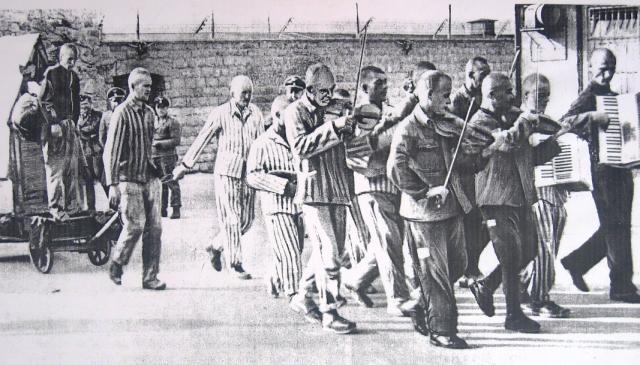
Der tango fun Oshvientsim
[ca. 1940]
"Scritto nel campo da una ragazza rimasta sconosciuta e perita così. Da un testo di Furio Biagini (Il ballo proibito. Storie di Ebrei e di tango, ed. Le Lettere 2005), che a sua volta cita un volume del 1948: Kaczerginsky, Shlomo - Lider fun di Getto un Lagern: tekste un melodies gesamlt, N.York 1948." - Il Deposito - Canti di Lotta
In Canti di Lotta della Sinistra italiana, Pardo Fornaciari ha inserito la canzone con una sua traduzione ritmica, naturalmente molto bella. Sia nel Deposito che in Canti di Lotta della sinistra, però, la trascrizione del testo yiddish non è conforme agli standard della YIVO. In altri punti il testo è addirittura sbagliato.
Abbiamo quindi reperito da Google Libri un importante testo di Shirli Gilbert, Music in the Holocaust, dove il testo è riportato correttamente con una breve introduzione (nella quale è citata la fonte... (Continues)
[ca. 1940]
"Scritto nel campo da una ragazza rimasta sconosciuta e perita così. Da un testo di Furio Biagini (Il ballo proibito. Storie di Ebrei e di tango, ed. Le Lettere 2005), che a sua volta cita un volume del 1948: Kaczerginsky, Shlomo - Lider fun di Getto un Lagern: tekste un melodies gesamlt, N.York 1948." - Il Deposito - Canti di Lotta
In Canti di Lotta della Sinistra italiana, Pardo Fornaciari ha inserito la canzone con una sua traduzione ritmica, naturalmente molto bella. Sia nel Deposito che in Canti di Lotta della sinistra, però, la trascrizione del testo yiddish non è conforme agli standard della YIVO. In altri punti il testo è addirittura sbagliato.
Abbiamo quindi reperito da Google Libri un importante testo di Shirli Gilbert, Music in the Holocaust, dove il testo è riportato correttamente con una breve introduzione (nella quale è citata la fonte... (Continues)
מיר האָבן טאַנגאָס, פֿאָקסטראָין און מעלאָדיׅעס
(Continues)
(Continues)
Contributed by Riccardo Venturi 2008/12/5 - 02:36
Song Itineraries:
Extermination camps
זאָג ניט קײנמאָל

Zog nit keynmol
[1943]
Testo di Hirsh Glik
Musica di Dimitri Pokrass
[dalla canzone russa То не тучи — грозовые облака,
o Терская походная, con parole di Aleksej Surkov, 1935]
Lyrics: Hirsh Glik
Music: Dimitri Pokrass
[based upon the Russian song То не тучи — грозовые облака, or Терская походная, lyrics by Aleksej Surkov, 1935]
מלים : הירש גליק
מנגינה: דן ודמיטרי פֿוקאַרס
La canzone fu scritta da Hirsh Glik all'età di 21 anni, quando ancora si trovava nel ghetto di Vilnius e divenne in breve tempo celeberrima, nonché l'inno del movimento di resistenza partigiana ebraica agli assassini nazisti.
E' generalmente associata all'insurrezione del ghetto di Varsavia, ma le sue origini sono a Vilnius (Vilna), la rivolta del cui ghetto scoppiò proprio quando arrivarono le notizie da Varsavia. Fu registrata per la prima volta nel 1946 a cura della Commissione Storica Ebraica di Monaco... (Continues)
[1943]
Testo di Hirsh Glik
Musica di Dimitri Pokrass
[dalla canzone russa То не тучи — грозовые облака,
o Терская походная, con parole di Aleksej Surkov, 1935]
Lyrics: Hirsh Glik
Music: Dimitri Pokrass
[based upon the Russian song То не тучи — грозовые облака, or Терская походная, lyrics by Aleksej Surkov, 1935]
מלים : הירש גליק
מנגינה: דן ודמיטרי פֿוקאַרס
La canzone fu scritta da Hirsh Glik all'età di 21 anni, quando ancora si trovava nel ghetto di Vilnius e divenne in breve tempo celeberrima, nonché l'inno del movimento di resistenza partigiana ebraica agli assassini nazisti.
E' generalmente associata all'insurrezione del ghetto di Varsavia, ma le sue origini sono a Vilnius (Vilna), la rivolta del cui ghetto scoppiò proprio quando arrivarono le notizie da Varsavia. Fu registrata per la prima volta nel 1946 a cura della Commissione Storica Ebraica di Monaco... (Continues)
זאָג ניט קיינמאָל אַז דו גייסט דעם לעצטן וועג,
(Continues)
(Continues)
Contributed by Riccardo Venturi -0001/11/30 - 00:00
Song Itineraries:
Ghettos
×
![]()

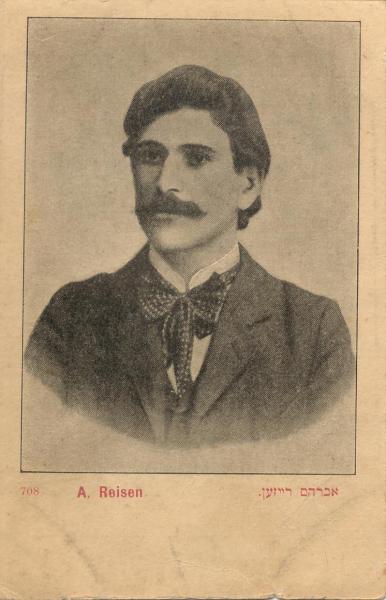
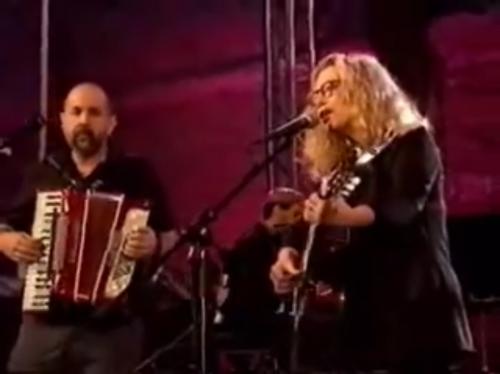
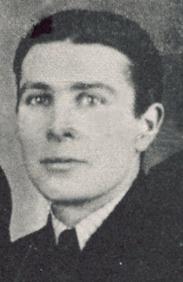
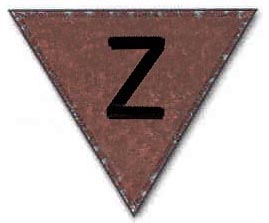
![Un capretto [Dona, dona]](img/upl/donadonatype_copia_2.jpg)
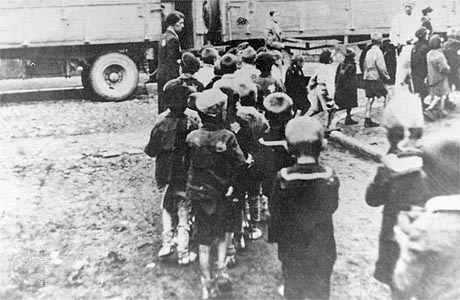
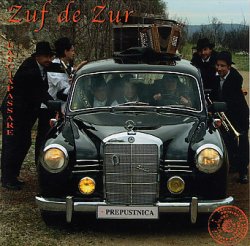

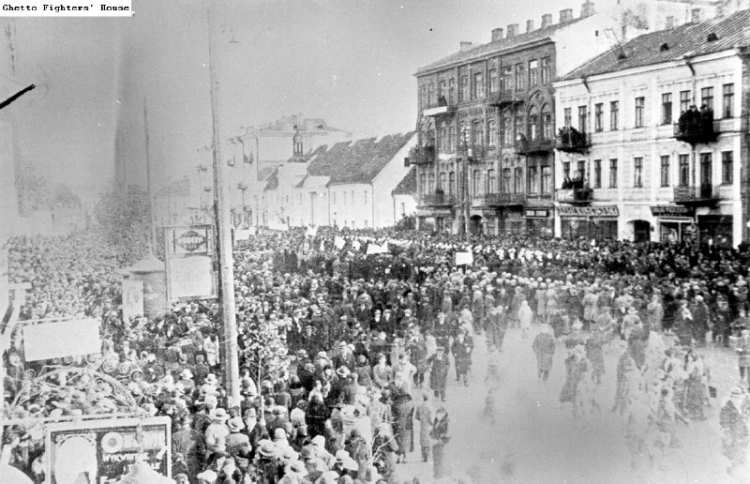
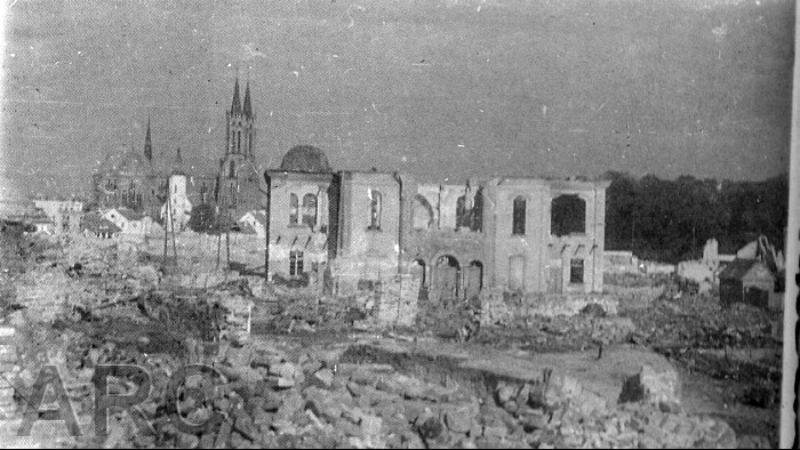
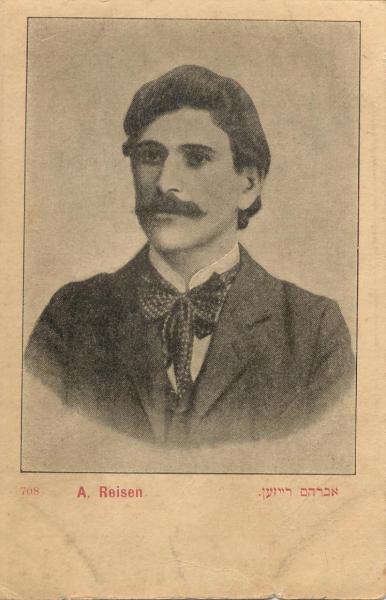
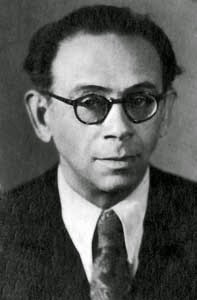
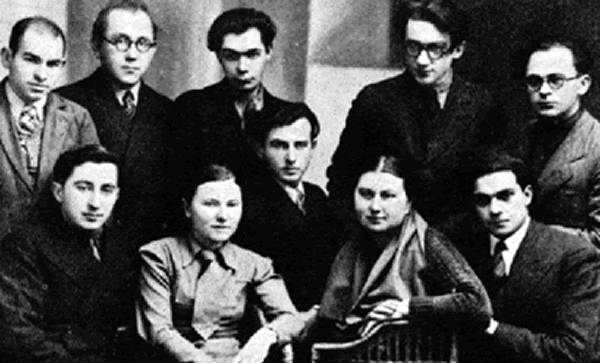
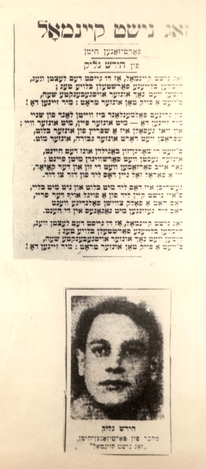
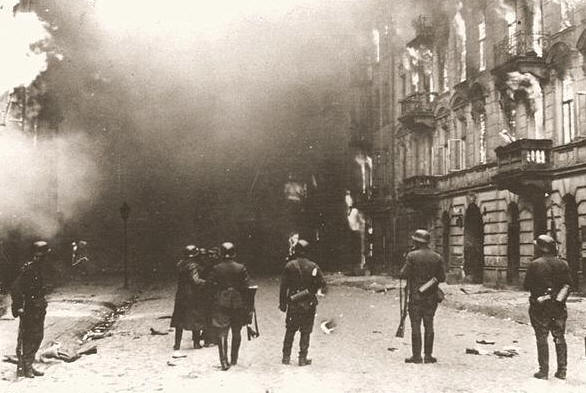

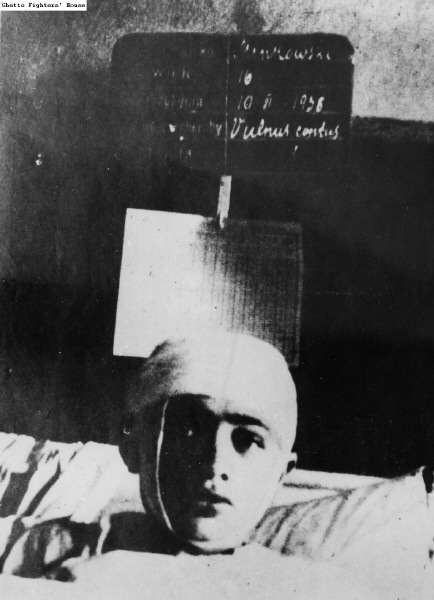
[1942]
Testo di Hirsh Glik
Musica: tradizionale russa
Lyrics by Hirsh Glik
Music: Russian folk melody
"Recorded for the Jewish Historical Commission, Munich, 1946. Performed by Betty Segal, accompanied by Akiva Daykhes on the accordion. The song appears in Lider Fun di Getos un Lagern (1948: words – p. 345, melody p. 428), in Mir Zaynen Do (1983, p. 88) with English translation, and in Min Hametzar (1987, p. 96) entitled, “A Song for the Woman Partisan” (p. 178). The song tells of the first attack of the Vilna partisans, the FPO, on a German army convoy. A young woman partisan, Vitke Kempner, and the partisan Itzik Matskevich threw a grenade on the convoy, damaging it. The song describes the woman partisan in her coat and hat, her beautiful face and her heroism. According to the song, she managed to stop the convoy with a small pistol.... (Continues)